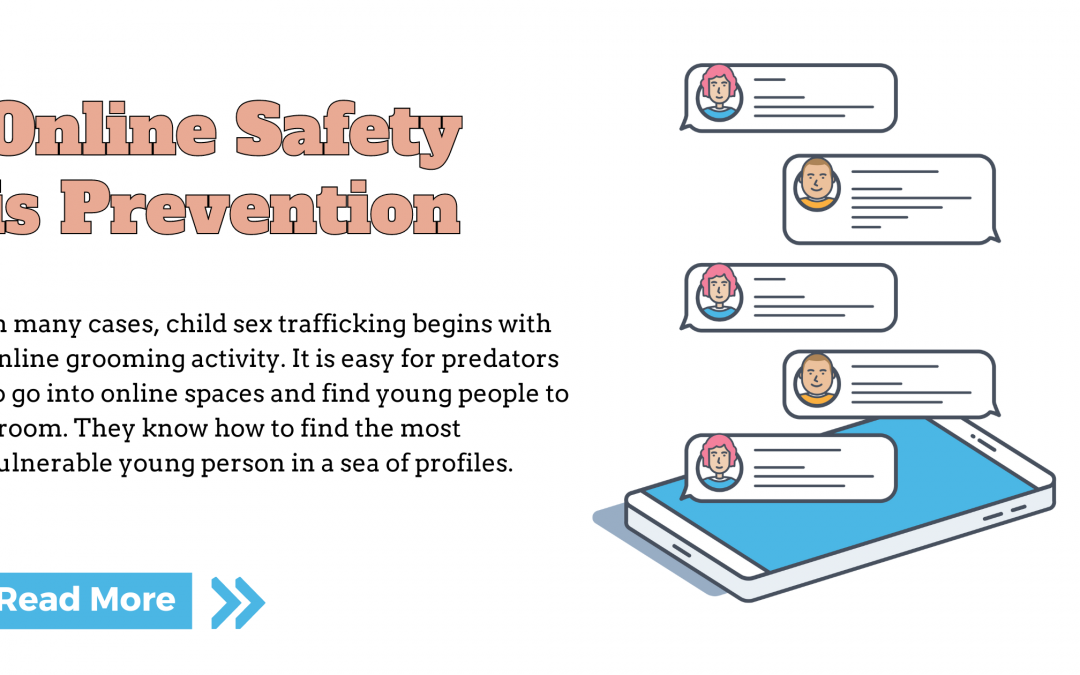Online safety is prevention. Online predators know how to find the most vulnerable young person in a sea of profiles on social media platforms.
In many cases, child sex trafficking begins with online grooming activity. It is easy for predators to go into online spaces and find young people to groom.
They look for public posts that reflect:
- Feelings of isolation – “No one understands me.”
- Feelings of loneliness – “No one cares about me.”
- Conflicts with caregivers – “Fighting with my mom again, ugh.”
- A history of trauma – Tells an involved story about a traumatic event that happened to them in an effort to seek connection or community understanding.
- Financial insecurity – “I don’t have the money for that.”
- Overall instability in the home – “It’s always fighting here” OR “There’s no peace in my house.”
Once that predator finds a vulnerable child, they begin to build a relationship with them online using flattery, gifts, and offering the emotional support the young person seems to lack.
Once they are able to make the child connect with them emotionally, they can further manipulate them into sending sexually explicit photographs of themselves or convince them to run away from home to meet them.
After that happens, the child is at increased risk of exploitation.
3 TIPS TO KEEP KIDS SAFE ONLINE
Have an open line of communication with your child.
This not only improves your relationship as a whole, but also a strong line of communication fosters trust.
Trust is invaluable when a child has questions or they need help. An open line of communication will help you teach your child how to stay safe online and give them the opportunity to come to you when they need help.
Know how to use social media apps.
For caregivers, this is a tough one, but do your best in understanding what new apps are available and and how to use them – privacy settings and all.
Also, be aware that there are apps that hide other apps. Be on the look out for apps that look like locks and calculators.
Those apps are usually hiding other apps where conversations, grooming, and file sharing may be taking place.
Privacy is king.
Make sure that all the apps are set to private.
This setting prevents location services to run while your child is using the app. Keep in mind, that a young person is adept at changing these settings, so they may end up changing them back without your knowledge.
That is why it is important to have an open line of communication to continue encouraging privacy along with knowing how to use the apps.
Let’s keep in mind, there are so many more tips for keeping children safe online, indicators if a child is being groomed, and common ways predators coerce young people.
You can always sign up for NC Stop Human Trafficking’s newsletter to be alerted of when these virtual education sessions are happening.
You can always support our work by visiting www.ncstophumantrafficking.org/donate so that we can continue empowering caregivers and keeping young people safe.
— Written by Melinda Sampson, chief operating officer. She can be reached by email at melinda@encstophumantrafficking.org

